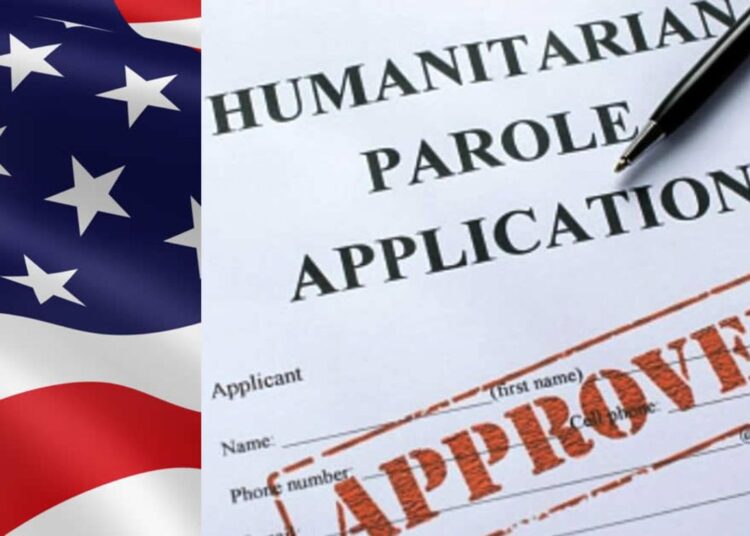The United States government resumed this Thursday the allocation of humanitarian permits for immigrants from Cuba, Haiti, Nicaragua and Venezuela, amounting to up to 360,000 people per year.
The program allows citizens of those countries to travel and enter the United States legally with a work permit for two years. It had been suspended at the beginning of August to investigate an avalanche of alleged frauds.
The Department of Homeland Security (DHS) confirmed to the EFE news agency the restart of the process, after a pause of almost four weeks.
A statement from the entity explained that the selection process has been improved, especially that of the sponsors of the people who make the request under a program known as parole.
Frauds
The program, an initiative of the Biden administration to promote safe immigration to the United States after great pressure on the southern border by thousands of illegal migrants, had been frozen after it was discovered that 3,218 sponsors in the United States were supporting almost 101,000 immigrants from Cuba, Venezuela, Nicaragua and Haiti.
The investigations detected thousands of cases of sponsors who used the same postal addresses, internet IP addresses, or telephones.
For example, almost 600 applications were flagged because they all appeared to use the address of the same warehouse in Orlando (Florida). In addition, they found repeated uses of the same Social Security numbers, including numbers belonging to deceased people, the investigation indicated.
New control measures
Likewise, the DHS indicated that as part of “an internal review,” it adopted several measures to strengthen “the integrity” of the program in order to resume “the issuance of new travel permits” to the accepted immigrants.
Among the last-minute provisions are new criminal record background checks for sponsors in the United States with fingerprinting, scrutiny of financial records, as well as oversight measures to prevent them from submitting “a mass” of applications.
The federal agency’s statement warned that the DHS is committed to holding accountable those who commit fraud or attempt to exploit others for their benefit, adding that anyone who commits fraud or other abuses will be referred to the appropriate authorities for prosecution.
Sponsors are people who live legally in the United States and must be responsible for financially supporting immigrants who want to benefit from the program, in case they need it, to prevent them from becoming a public charge.
White House eager to restart
According to Noticias Telemundo, which cites a source familiar with the U.S. government, the White House was eager to reactivate the program as soon as possible because it believes it is deterring immigrants from Cuba, Haiti, Nicaragua and Venezuela from crossing the border illegally.
More than 2.6 million migrants from Haiti, Nicaragua, Venezuela and Cuba have applied for entry through the program, known as CHNV, and a similar one for Ukrainians, according to the DHS report.
Up until July, more than 530,000 immigrants had been authorized to travel to the United States under CHNV, according to federal data.
The report does not clarify how many of those applicants arrived with the help of the 3,200 suspected sponsors.
It is also not verified whether the 101,000 applications that were flagged for review were from people who have already entered, from those who were rejected, or from a mix of both.
In a figure made public in May, up to 95,500 Cubans had been favored by the humanitarian parole program since it came into effect in January 2023. Of these, as of last April, 91,100 were already in the United States.










